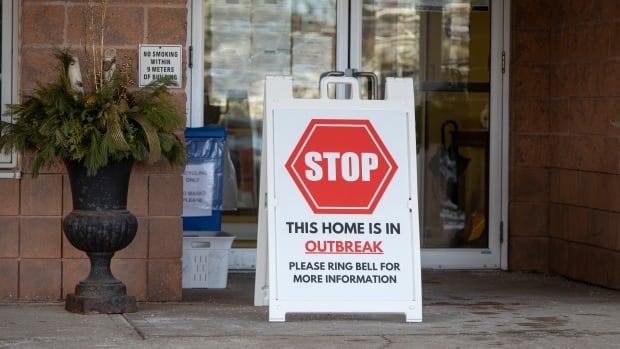
Ontario’s long-term care inspection system was totally overwhelmed during the first wave of the COVID-19 pandemic, and the ministry overseeing care homes was caught unprepared and unable to ensure the safety of residents and staff, the province’s ombudsman says.
In the report issued Thursday, Ombudsman Paul Dubé revealed there were no inspections of long-term care homes in the province for seven weeks in the spring of 2020, and no inspection reports issued for two months.
“Few knew that this oversight mechanism had fallen apart,” Dubé wrote.
“It is crucial that the Ministry fully understand and learn from the failure of the Inspections Branch to adequately and quickly respond.”
Dubé is holding a press conference timed to the report’s release at 11 a.m. ET. CBC News is streaming it live in the video player above.
The ombudsman found the ministry’s lack of planning and preparedness was “unreasonable, unjust and wrong,” the ombudsman found. His office has made 76 recommendations to the government. You can read the full report at the bottom of this story.
A news release from Dubé’s office says the province has accepted all of the recommendations, and the ministry has agreed to report back every six months on its progress in implementing them.
“The people of Ontario should be able to count on their public services to learn lessons from our experience with COVID-19 and be adequately prepared for the next threat to our collective health,” Dubé wrote.
Deaths mounted
From March 2022 to April 2022, 4,335 residents died in Ontario’s long-term care homes, as well as 13 staff members.
For a seven-week period from mid-March into May, inspections stopped in the province, the report states. There were 720 COVID-related deaths in long-term care during this period alone.
The ombudsman’s new report is not the first to denounce the province’s handling of COVID-19 in long-term care, following damning reports from the Canadian Armed Forces (CAF) in 2020, and Ontario’s auditor general in 2021.
Given those other investigations were also underway, Dubé says he focused specifically on inspection and enforcement activities for his report. Though he launched the investigation of his own accord after the CAF report landed, his office also received 269 complaints and inquiries from families of long-term care residents, as well as from employees and other stakeholders in the sector.
According to the report, one ministry employee reported a “complete system breakdown” in the early weeks of the pandemic, with inspections stopping because the province had no plan to ensure the safety of inspectors. At the time, inspectors had no personal protective equipment or training on infection control.
A host of recommendations
Instead, inspectors were deployed to call and “support” homes, Dubé wrote. When inspections began again, only workers who volunteered were sent into facilities experiencing outbreaks, and inspectors often gave homes reduced penalties for non-compliance, or let them have months to remedy issues that were causing residents’ serious harm.
“We saw many examples where inspectors used their considerable discretion to lower the default enforcement action that would otherwise apply, even in very serious situations and with little to no explanation,” Dubé said in the report.
“We discovered that extremely serious COVID-related issues — such as infection prevention and control or personal protective equipment usage — were not inspected in a timely manner, or at all. The Inspections Branch also did little — often nothing — when homes did file reports about COVID-19 outbreaks.”
Dubé has made a host of recommendations to the province, including:
- Regular training for inspectors.
- Providing enough personal protective equipment.
- Establishing clear rules for when on-site inspections are needed.
- Ensuring the ministry always has staff with expertise in infection control measures available for in-person inspections.
- Issuing immediate compliance orders in situations where residents are at an ongoing risk of serious harm.
- Making sure the inspections branch has enough staff.
Dubé says he is pleased with the ministry’s response to his recommendations, with over half of them being fully or partially implemented already.
Read the ombudsman’s full report: